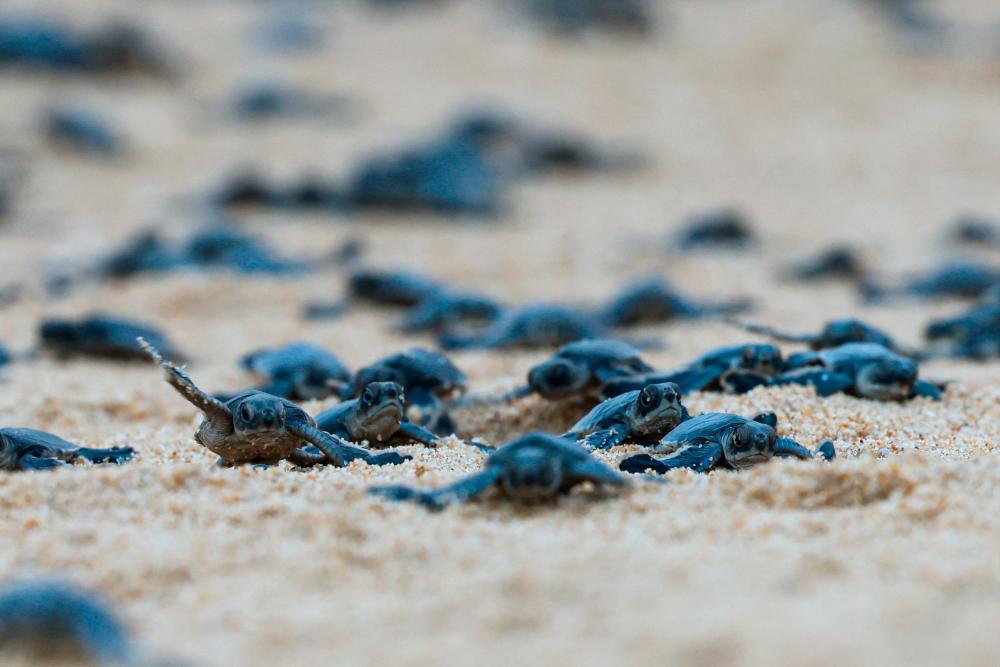PETALING JAYA: Sea turtles are facing an existential threat from the escalating climate crisis, with rising temperatures affecting the balance of male and female hatchlings needed for the species’ survival.
Chagar Hutang nesting sanctuary in Kuala Terengganu have revealed that very few male turtles have hatched in recent years as global warming heats the country’s beaches.
If this continues, sea turtles may stop producing viable offspring entirely within just 10 to 15 years, as reported by Al-Jazeera.
“With global warming, this will result in no males being hatched,“ said Universiti Malaysia Terengganu’s turtle researcher, Mohd Uzair Rusli.
He said the incubation of turtle eggs requires precise temperatures, as even a one-degree Celsius shift can determine the sex of the hatchlings.
Although the narrow temperature range producing a balanced sex ratio is considered “an evolutionary adaptation” by scientists, rising temperatures fueled by climate change are disrupting the balance.
READ MORE: March officially named world’s hottest month
With last month being the earth’s warmest March on record, Malaysia has recorded the highest sea surface temperatures, driving more heat absorption into nesting beaches.
As the heat continues to increase, there could soon be too few males to mate successfully with females.
The climate emergency is not the only threat facing sea turtles in Malaysia. Even before the climate impacts, turtle numbers had already plummeted.
The most recent instances of discovering leatherback turtle nests in Terengganu occurred in 2017, but both nests were found to contain infertile eggs. In comparison, there were approximately 10,000 leatherback turtle nests back in 1953.
Adding to these challenges are human impacts such as habitat loss, plastic pollution, and poaching, which pose significant threats to Malaysia’s four turtle species: the green, hawksbill, olive ridley, and leatherback.
Making things worse, sea turtles already face daunting survival odds – only about 1 in 1,000 hatchlings reach adulthood, and they only return to their natal beaches to nest after reaching maturity, a process that takes approximately 15 years.
The potential extinction of sea turtles could devastate coastal environments and the tourism economy, as these reptiles play a crucial ecological role, including controlling jellyfish blooms and promoting seagrass growth, which in turn reduces erosion and creates marine habitats.
ALSO READ: Integrated approach needed to address plastic pollution - DOF










